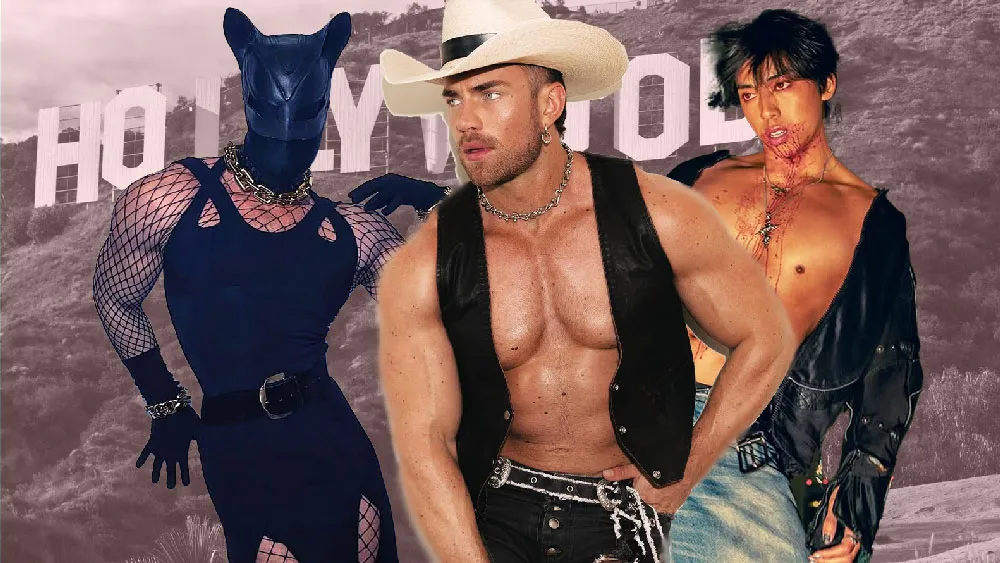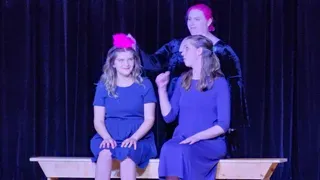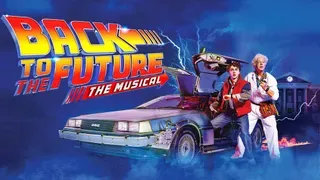December 18, 2013
Anchorman 2: The Legend Continues
Jake Mulligan READ TIME: 3 MIN.
Like most good Will Ferrell movies, "Anchorman 2: The Legend Continues" thrives on idiosyncrasies. What he does isn't particularly subversive or uncommercial, but it never fails to be admirably weird and singularly skewed. "Anchorman 2" checks off a lot of the boxes you'd expect it to check off, sure, but it also checks off a bunch of boxes you didn't know existed. Some will call it satire, but that really only applies to a few scenes. "Anchorman 2" is deliberately unfocused and mindlessly silly in ways an according-to-Hoyle satire could never be. This is stream-of-consciousness absurdist comedy, complete with a perm.
"The Legend Continues" picks up with Ferrell and his blonde bombshell wife Veronica Corningstone (Christina Applegate,) many years on from the first film, called into the office of their superior. Harrison Ford plays the role -- the first of a veritable Christmas feast of cameos -- and he promotes Veronica and fires Ron in that I-don't-care-about-your-feelings tone that Ford is so great at. Soon enough the couple is split, and Ron finds himself getting the first film's gang back together for a go at the first-ever 24-hour news station; finding Steve Carrell's Brick Tamlin confused by existence, David Koechner's Champ Kind running the lowest of low-rent fast food joints, and Paul Rudd's Brian Fantana photographing kittens.
From that point on there are merely barely-sketched outlines of a narrative and unfocused inklings of a primary theme: Burgundy begins to win back audiences -- as well as take the lead in a battle against another anchor, played with laughably impeccable handsomeness by James Marsden -- with contemporary trash-TV methods. He provides commentary over car chases and dispenses with features that may bother corporate sponsors, much to the consternation of his high-minded producer (Meagan Good.) Some critics have even gone so far as to suggest there are shades of "Network" in this angle. That's a bit of an overstatement; it's probably fairer to say that there are a few momentary flickers of it.
Truth is, there's twice as much fan service going on here as there is perceptive social commentary. If you can recall a popular joke from the first movie, it's surely paid off in some fashion here. Sex Panther, check; cameo-laden gang-fight, check; jazz flute performances, the gang jumping up in the air as if to be captured in freeze-frame, makeover-based interludes, Ron drunkenly shaming himself in public, Baxter the dog saving Burgundy from a ravenous wild animal, check, check, check, check, and check. At its worst, during these moments, "Anchorman 2" is little more than a victory lap.
Yet Ferrell, working with his creative partner/director Adam McKay, flies so far off the handle at so many other points of the film's two hour running time that those retreads feel more like a framework than a faux pas -- a Trojan horse through which they infiltrate their madcap, go-for-broke lunacy. While the reliance on improvisation seen throughout their previous films (and other pictures produced by Judd Apatow) often distracted from the narratives (leaving us watching scenes that petered out, rather than peaked and stories that played second-fiddle to set pieces), "The Legend Continues" completely disavows the idea of a structured narrative. Plot points are rarely set up or foreshadowed ahead of time, and are almost never the focus of a given scene -- they merely intrude.
This allows for a climate of anything-can-happen madness to take hold, allowing the film to be as quick to throw an irreverent gag at the wall as any Marx Brothers picture. That tone stands tall above the rather embarrassing self-congratulatory callback jokes, as well as over the barely-there narrative. One lengthy interlude sees Ron develop a soon-cured physical impairment while simultaneously raising a shark. The climactic chase scene revolves around a plot point introduced mere moments prior to said chase scene. One sex scene is intercut with not-irrelevant archival clips. Ferrell and McKay's great American idiot comedy may retread often, but its brand of lunacy is nothing if not inspired.






